Hosted by Claire Musters
This month I’m reading…
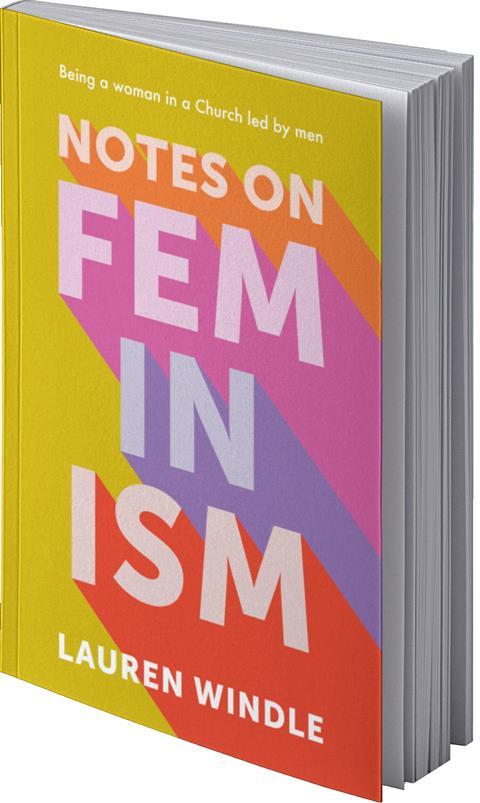
Notes on Feminism: Being a woman in a church led by men By Lauren Windle
(SPCK, 978-0281087679)
Lauren is brave to have written this book. As she herself comments: “At the moment many Christians are critical of feminism, and many feminists are critical of Christianity.” However she truly believes: “that the two are more compatible than people realise”. Her desire is to bring people together and, while has her own views, at no point does she seek to impose them on the reader. Instead, she presents both sides of the argument (and everything in between) and also draws out positives she has learned from friends who don’t land on the same page as she does.
It is this approach that makes the book refreshing. Yes there are times when it is shocking (she isn’t shy about tackling difficult subjects such as violence against women), but you also feel like you are in safe (albeit often blunt) hands (I actually loved the parts where Lauren injected her own tongue-in-cheek comments, as I could literally hear her saying them).
The book starts by looking at the whole definition of what feminism is – and isn’t – before tackling issues such as what we teach boys, the idea of a woman’s place being in the home, female preachers, beauty standards, the #MeToo movement. The Bible passages that often cause controversy are also unpacked, alongside the various interpretations.
This is a refreshingly honest, but also humble, book.
Why do you think there are such differing views on feminism today?
I think that throughout history, we as people have had vastly differing views on subjects that affect women. Our views could be influenced by our culture, upbringing, religion, denomination and gender, among other things. The difference today, is that we’ve collected all of these issues together and started using the umbrella term ‘feminism’ to describe them. Clumping together a lot of topics like equal pay, reproductive rights, violence against women, women in church leadership, doesn’t make cohesion easy.
And why do you think Christians in particular are wary of those who call themselves feminists?
The term ‘feminism’ has become so stigmatised. When I was interviewing Christians for the book, my first question was always: “Would you call yourself a feminist?” The responses were about 50/50. Some felt that their ideology was sufficiently aligned to relate to the term, while others couldn’t get on board with it. Interestingly though, when we discussed their views on women’s treatment, all of them expressed opinions that aligned with the feminist movement – even if they weren’t in complete agreement.
Could you explain the different groups that you called upon to widen your understanding of the various perspectives on feminism?
One of the first things that was flagged up to me when I started writing the book was how different women’s experiences can be. It makes sense, but it didn’t hurt for someone to drive it home before I got started. The discrimination some women face is exacerbated by other factors, like their race, age, marital status, denomination or socioeconomic group, so I wanted to cast the net wide and hear from people within all these categories. Plus, I wanted to hear from men! It’s not just women who get to have an input on feminism. So with that in mind, I called on three main groups to offer up their opinions and named each after a 90s band: All Saints (a group of women from a mix of Anglican and evangelical backgrounds), Westlife (a group of men from Anglican churches) and Sugababes (a group of Baptist women of colour).
Looking at subjects as diverse as pain and expertise, you unpack how women are often ignored, dismissed or patronised when they speak out. Why do you think that is?
Many women have been dismissed time and time again. Sometimes that’s in minor ways like a man verifying a fact she’s told him by Googling it under the table, or mid-level ways like overriding her in a work meeting, or dangerous ways like ignoring her when she speaks out about sexual assault. I tell a story in the book of a male doctor dismissing me when I said I was in pain only for a female surgeon to take over, rush me into theatre and remove “the worst burst appendix they had seen”. And this is a phenomenon experienced more acutely by women of colour, who are half as likely to be prescribed opioid pain relief in A&E as their white counterparts. Men have been encouraged to be self-assured, to trust their gut and speak assertively. They are rewarded for it. While women are encouraged to be likeable and tentative with their knowledge so as not to come across as arrogant. This means that in our society, we can often let a man’s confidence override a woman’s expertise.
You have a note called ‘A biblical Girl’s Guide to…’ and say: “If church-going women are meant to be passive and unassuming, then biblical women didn’t get the memo.” As you looked at biblical women again, which one stood out to you most?
SO many! The women in the Bible are courageous and untamed and passionate and strong. They aren’t these ethereal waifs waiting for the men to issue instructions. They hear from and respond to the living God in powerful ways. I think the one that stands out to me most is Vashti. She was the queen married to King Ahasuerus, who later would marry Esther and agree to protect the Israelites after Esther presented herself to him uninvited. We often skip over Vashti in that story, but she was brave. The king called on her during a banquet; he wanted her to appear nude before the court so he could show off his possession. She refused. And that’s where the course of history was changed for the Jews. Not just because one woman appeared before the king, but also because another refused to.
What new insights did you glean as you researched the ongoing debate surrounding women in leadership?
Dr Sandra Richter is my favourite biblical scholar who speaks on women in leadership. She, like me, believes that a woman can speak in and lead a church. But (and this is a big but) she also explains that she does not believe this should be a dividing issue. She says that she would go to a church that didn’t allow her to speak if she was called there, and indeed she does. I felt incredibly challenged by that. I’m 35, which in many ways is still young. I’ve definitely still got some of that young-pup “how dare they?” energy in my response to things. I’m grateful that I can learn from wiser women who go before me and recognise what truly brings glory to God.
You also spoke to women about their views on marriage and family life – were you surprised to discover a 50/50 split between an egalitarian and complementarian view?
Broadly (and I mean very broadly) we can put Christians in two camps: complementarian and egalitarian. Someone on the complementarian camp will believe in some degree of male headship – whether that be nominal or firmly enforced. While an egalitarian believes men and women are different but equal in their roles in a relationship. It’s really not as simple as that, but I can’t take up the whole interview going into the nitty gritty! This is all down to how you interpret the scripture that relates to husbands and wives, and there are many different views.
What was most surprising to me, was that it was hard to predict who would fall into which category. I spoke to progressive, liberal women who were complementarian and staunch conservatives who were egalitarian. One thing that was consistent across the women I spoke to who did believe in male headship, was that they had no intention of blindly following a man who was not following God. They believed that by marrying a man of God and agreeing to ‘obey’ him in their vows, they were agreeing to follow God, collaboratively with him but deferring to his judgement in the case of a tie.
What impact do you hope your book will have on the conversation around feminism, as well as how we relate to one another within Church?
I would love it to start more informed conversations. I know people won’t completely agree with me. I hope that readers will see that, in writing it, I was stepping out and following where God directed me. It’s hard to lay your views on contentious issues out in black and white, and I don’t expect everyone else to do the same. But I hope that it encourages us to listen more and share kindly. I hope that we can grow in our understanding and shine a light on injustices together.
Lauren Windle on:
The books that have changed my life
Children of the Voice by Ishmael
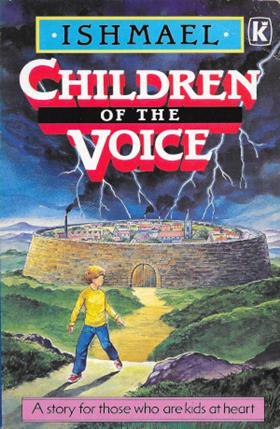
This was a book that helped form my faith in my early years. I dropped out of church at 13 and came back at 25, but I always remembered this book and its depictions of what the world says is fun versus what God says is fun. It had a profound effect on me.
The Five by Hallie by Rubenhold
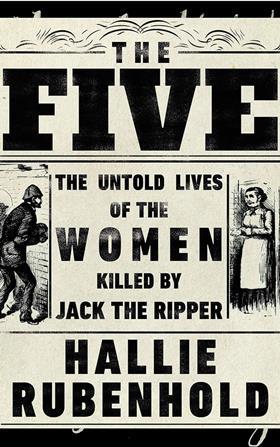
My favourite non-fiction book, The Five is an in-depth exploration of the lives of the five women murdered by Jack the Ripper. It gives no glamour or attention to their killer, but just tells the complex and compelling stories of the Victorian women who are usually completely overlooked or mistakenly labelled prostitutes. The research and storytelling of historian Hallie Rubenhold is second to none.
The Screwtape Letters by CS Lewis
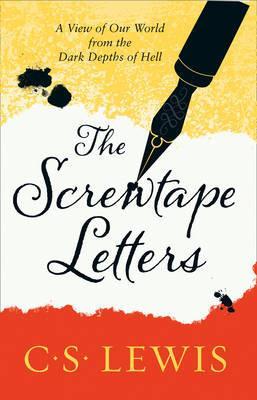
He’s the master of human nature. Reading The Screwtape Letters, much like CS Lewis’ other Christian books, feels like he’s snuck into my brain, stolen my thoughts, articulated them better and released them for publication. It is like magic when someone mirrors your innermost thoughts back to you. I’m grateful that this book gave me the opportunity to ask myself valuable questions about my thought processes and influences, and pointed me back to Jesus.













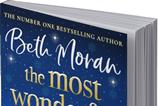
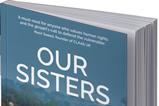


















No comments yet